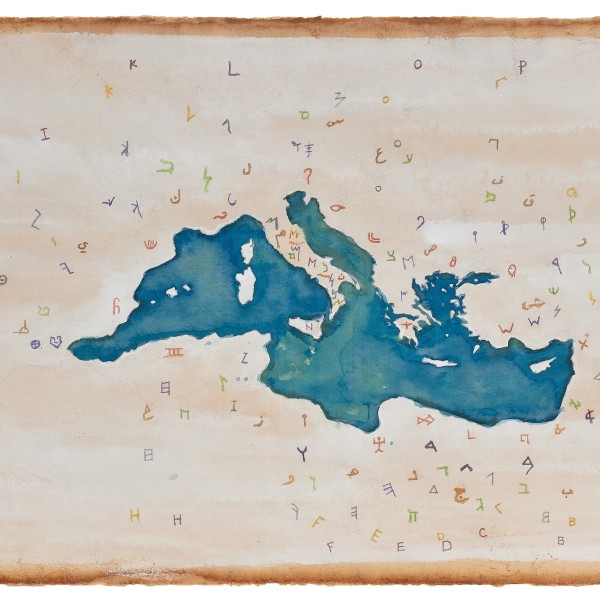-
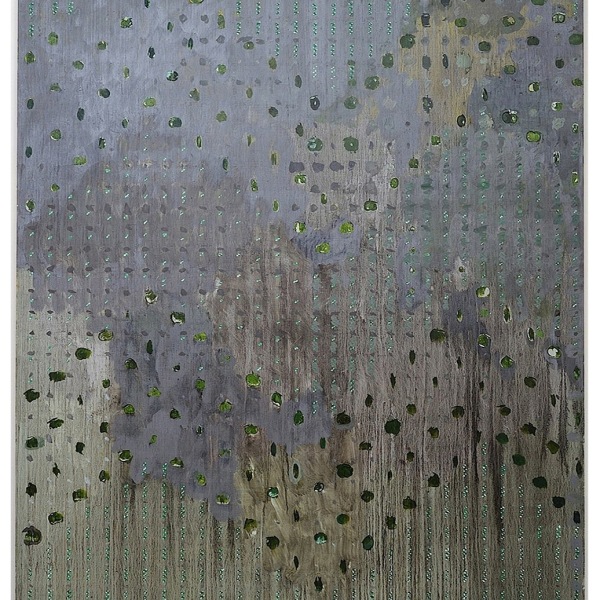
25.8.22 - Frieze Seoul
Thomas Dane Gallery at Frieze Seoul
Stand: A16
Showing works by Hurvin Anderson, Lynda Benglis, Walead Beshty, Glenn Ligon, Abraham Cruzvillegas, Alexandre da Cunha, Anya Gallaccio, Anthea Hamilton, Barbara Kasten, Ella Kruglyanskaya, Luisa Lambri, Glenn Ligon, Steve McQueen, Jean-Luc Moulène, Catherine Opie, Amie Siegel, Akram Zaatari.
Preview days: 2 - 3 September
Public days: 4 - 5 September
513 Yeongdong-daero
Gangnam-gu
Seoul
South Korea
-
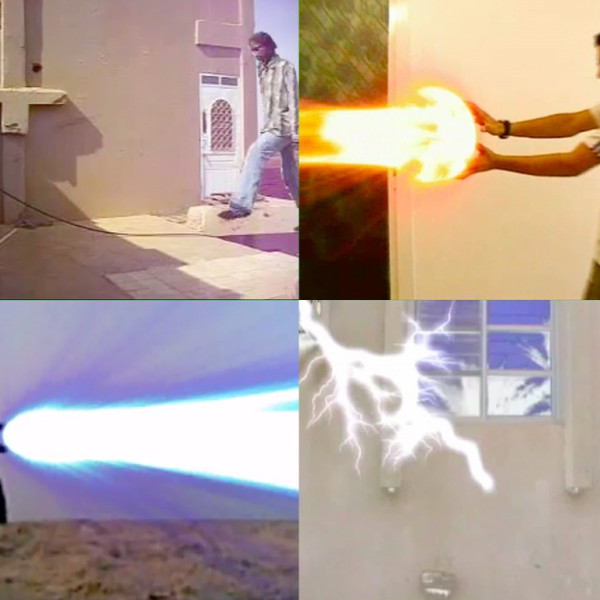
7.2.22 - 'Dance to the End of Love' at Tate Modern
Akram Zaatari’s ‘Dance to the End of Love’ is now showing at Tate Modern. A dance piece based on YouTube clips from countries across West Asia and North Africa, including Egypt, Yemen, Libya, Yemen, Saudi Arabia, United Arab Emirates and Oman, Zaatari chose material from 2005–10 of mostly young men performing activities that range from singing, dancing and playing music. They recreate scenes from sci-fi films or do stunts: special effects fireballs are hurled across the screen and jeeps are driven out into the desert in precarious positions.
The clips show how attitudes around masculine identities quickly spread and adapt to different settings and contexts. Cyberspace creates an audience and turns their performances into popular trends to repeat or re-enact. Zaatari completed this work at the beginning of a period of anti-government protests and uprisings, referred to as the ‘Arab Spring’ by western commentators. YouTube and other self-broadcast platforms played an important role in the political climate at that time.
Tate Modern, Blavatnik Building Level 3. On view as part of Tate Modern's Collection Route
-
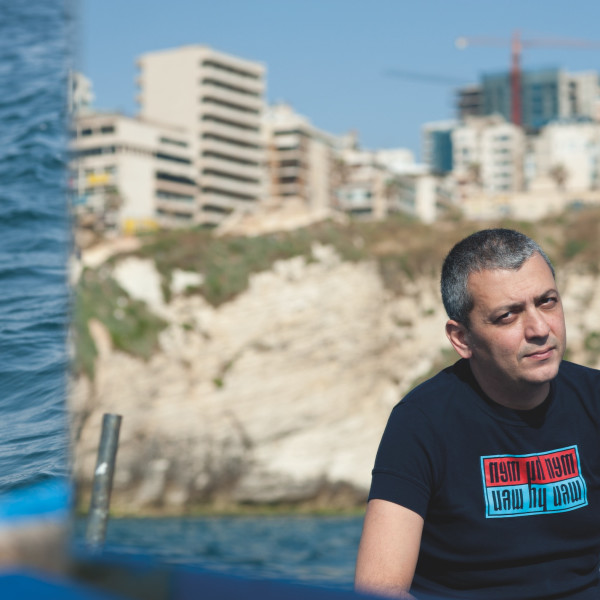
26.01.2021 - Akram Zaatari: Online Lecture, VCUarts
Akram Zaatari: Online Lecture, VCUarts
Akram Zaatari presents an online lecture as part of Wavelength, a series created in collaboration between VCUarts, the ICA, and VCUarts Qatar. Zaatari is part of a selection of artists, designers, curators and scholars who have been invited to share their work with the VCU communities in Richmond and Doha as well as the general public throughout the 2020–21 academic year.
Tuesday, 26 January, 12-1:30pm (ET, 5-6:30pm GMT)
-
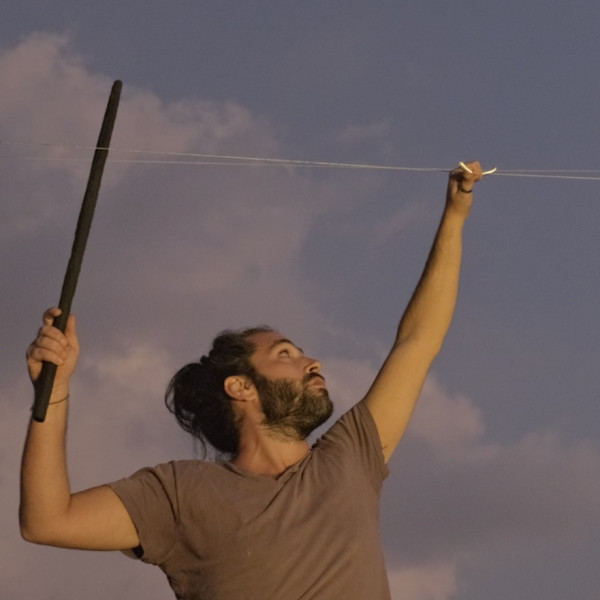
17.04.2020 - Akram Zaatari: The Landing, Sharjah Art Foundation Online
Akram Zaatari: The Landing, Sharjah Art Foundation Online
An online streaming of Akram Zaatari's The Landing. The film was first screened during Sharjah Biennial 14 and recently shown at the 70th Berlinale.
Friday 17 April 2020
8:30 - 9:30pm
-
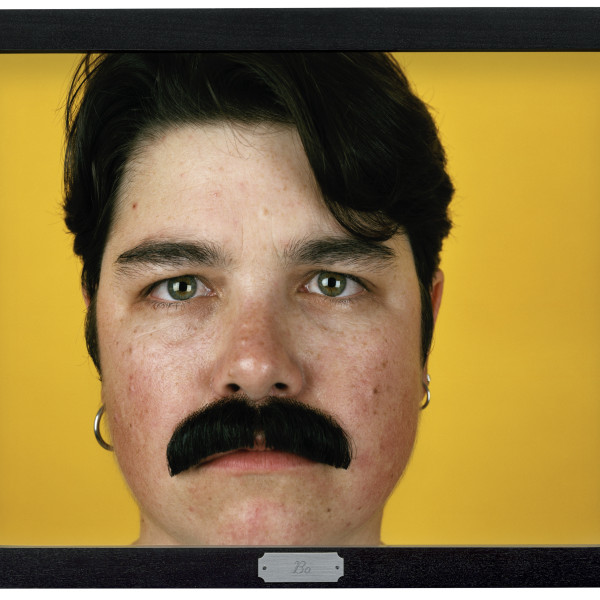
19.02.2020 - Catherine Opie, Akram Zaatari: Masculinities - Liberation through Photography, Barbican
Catherine Opie, Akram Zaatari: Masculinities - Liberation through Photography, Barbican
Examining depictions of masculinity from behind the lens, the Barbican brings together the work of over 50 international artists, photographers and filmmakers including Catherine Opie and Akram Zaatari.
Barbican Centre
Silk Street, London
EC2Y 8DSExhibition dates: 20 February - 17 May 2020
-
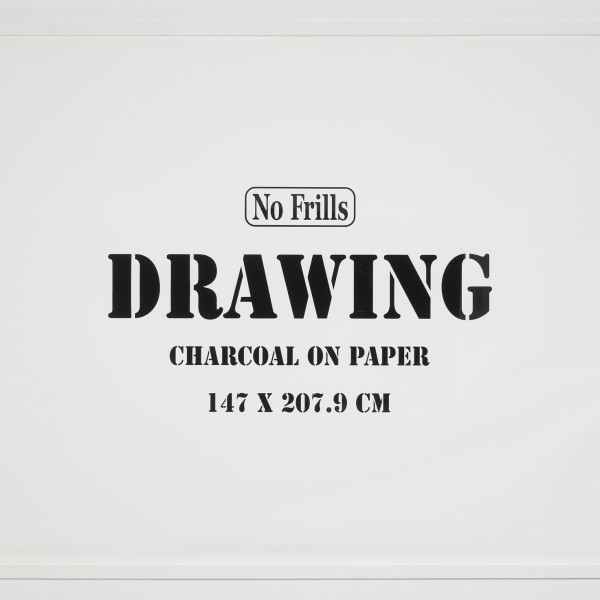
12.02.2020 - Thomas Dane Gallery at Frieze LA 2020
Thomas Dane Gallery at Frieze LA 2020
Drawing(s)
Thomas Dane Gallery
Stand: C08
Featuring works by: Terry Adkins, Hurvin Anderson, Walead Beshty, Lynda Benglis, Cecily Brown, Anya Gallaccio, Arturo Herrera, Ella Kruglyanskaya, Michael Landy, Bob Law, Glenn Ligon, Lari Pittman, Amy Sillman, Caragh Thuring and Akram Zaatari.
Preview: 13 February 2020
Public days: 14-16 February 2020
-
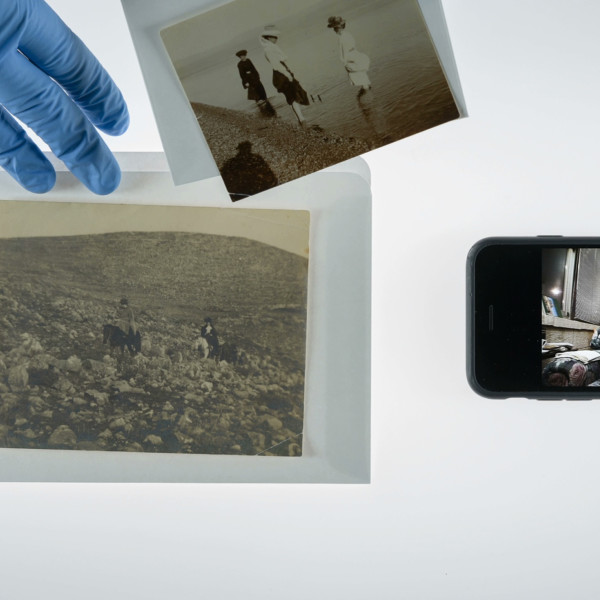
27.09.2019 - Akram Zaatari: Against Photography. An Annotated History of the Arab Image Foundation, Sharjah Art Foundation
Akram Zaatari: Against Photography. An Annotated History of the Arab Image Foundation, Sharjah Art Foundation
This exhibition reflects on the evolution of the Arab Image Foundation and its collections through the work and contributions of its co-founder Akram Zaatari.
Al Mureijah Square
Sharjah Art Foundation
Al Shuwaiheen
Arts Area, Sharjah27 September 2019 - 10 January 2020
Talk: On Collecting, Preserving, and the Archival Impulse
Akram Zaatari and curator Hiuwai Chu will discuss exhibition themes and the expansion of the definition of photography. They will also explore issues around archival culture and preservation, raising critical questions around authorship, ownership and the act of preservation as a creative practice.Friday, 27 September, 5:00-5:45pm
Further information -
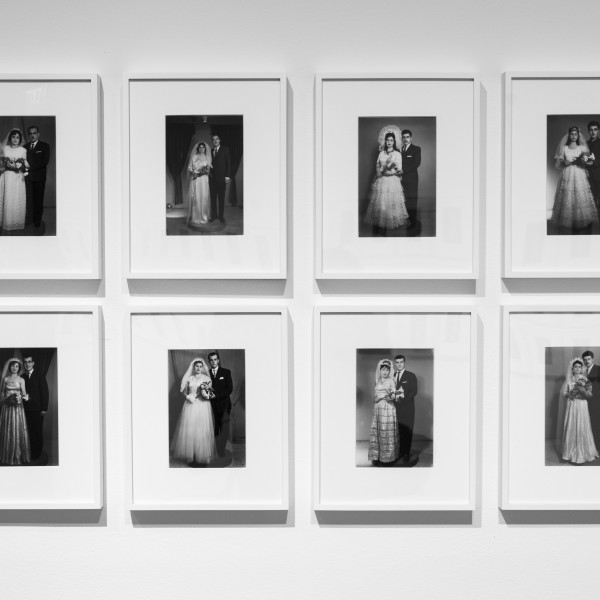
10.06.2019 - Akram Zaatari: Art Basel Unlimited 2019
Akram Zaatari: Art Basel Unlimited 2019
Akram Zaatari's The End of Love is on display for Art Basel Unlimited, with Thomas Dane Gallery and Sfeir-Semler Gallery.
Stand: K19
-
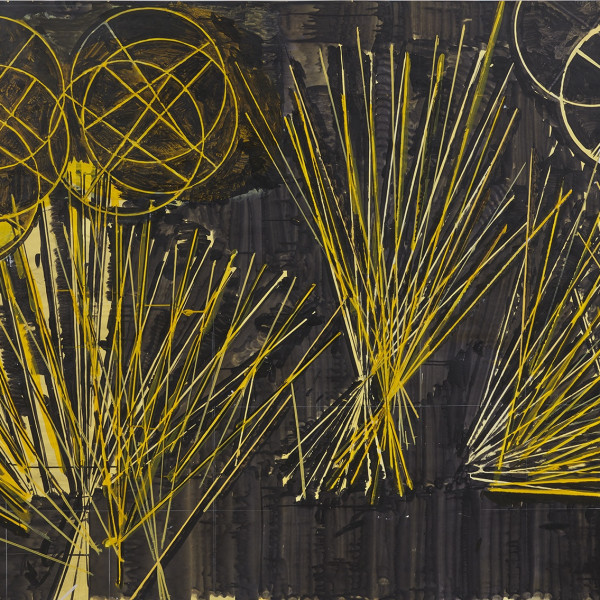
05.06.2019 - Thomas Dane Gallery at Art Basel
Art Basel - Stand: R18
Featuring works by: Terry Adkins, Hurvin Anderson, Lynda Benglis, Walead Beshty, John Gerrard, Anthea Hamilton, Arturo Herrera, Barbara Kasten, Glenn Ligon, Jean-Luc Moulène, Caragh Thuring, Kelley Walker, and Akram Zaatari.
Preview: 11-12 June 2019
Public days: 13-16 June 2019 -
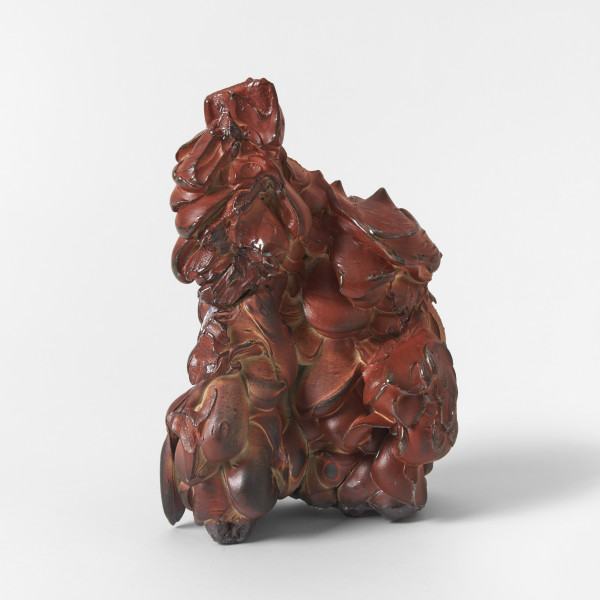
27.03.2019 - Thomas Dane Gallery at Art Basel Hong Kong
Art Basel Hong Kong - Stand: 1C02
Featuring works by: Hurvin Anderson, Lynda Benglis, Anya Gallaccio, John Gerrard, Arturo Herrera, Phillip King, Ella Kruglyanskaya, Bob Law, Glenn Ligon, Jean-Luc Moulène, Xie Nanxing, Albert Oehlen and Akram Zaatari.
Preview: 27-28 March
Public days: 29-31 March
-
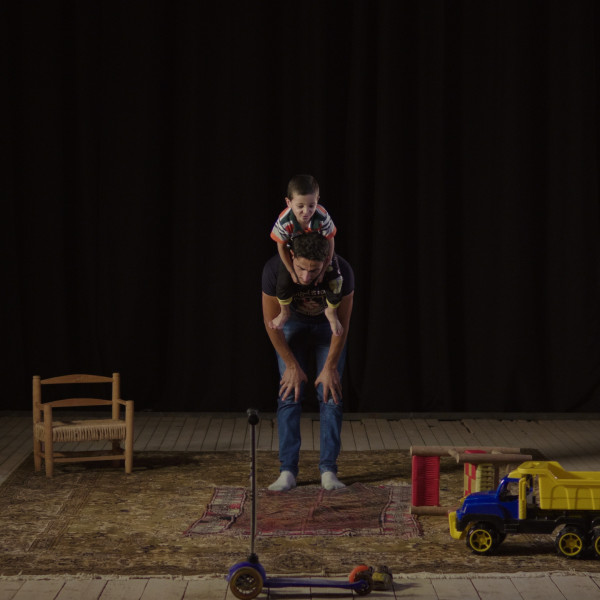
23.03.2019 - Akram Zaatari: The Script, Modern Art Oxford
Akram Zaatari: The Script
Modern Art Oxford presents a solo exhibition of works by Akram Zaatari. The exhibition includes the major new work, The Script (2018), and the video installation Dance to the End of Love (2011). Also on view is a photo-transfer installation devised onsite at Modern Art Oxford by Zaatari that extends his ongoing series, Studio Practices.
Akram Zaatari: The Script is a touring exhibition by New Art Exchange, Nottingham, in partnership with Turner Contemporary and Modern Art Oxford. Funded by Arts Council England.
Modern Art Oxford
30 Pembroke Street
Oxford, UK
OX1 1BP23 March - 12 May 2019
-
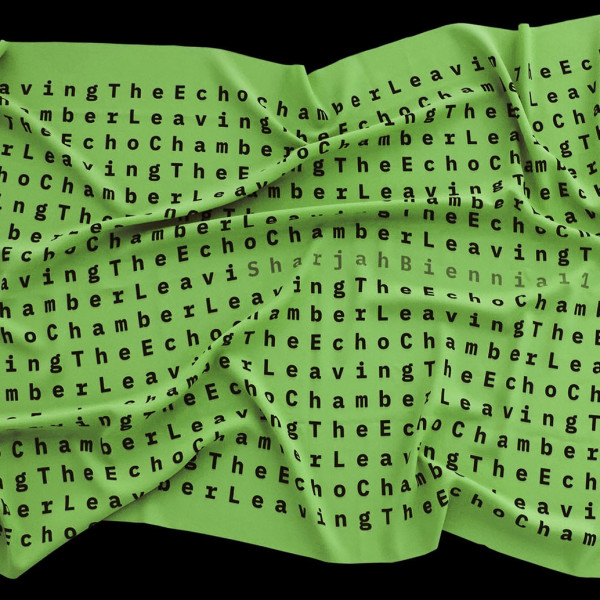
07.03.2019 - Barbara Kasten, Akram Zaatari: Sharjah Biennial 14
Barbara Kasten, Akram Zaatari: Sharjah Biennial 14
Sharjah Biennial 14, Leaving the Echo Chamber, will showcase three unqiue exhibitions, curated by Zoe Butt, Omar Kholeif and Claire Tancons.
Sharjah Art Foundation
Sharjah Art Museum
Al Shuwaiheen
Arts Area, Sharjah
7 March - 10 June 2019
-
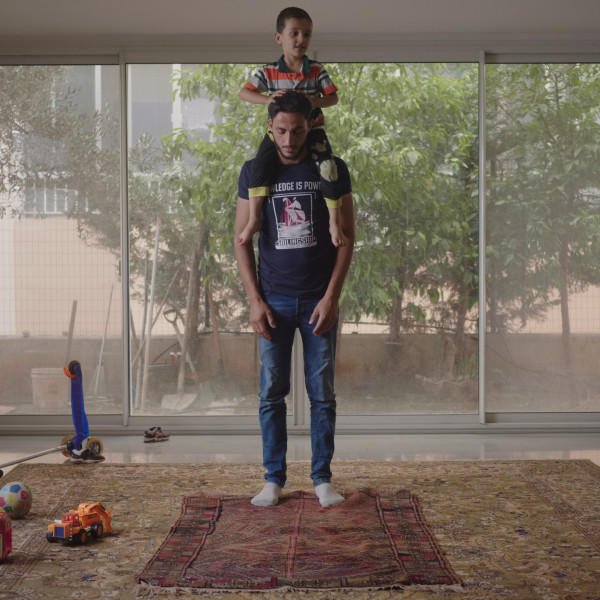
16.10.2018 - Akram Zaatari: The Script at Turner Contemporary
Akram Zaatari: The Script
Turner Contemporary, Margate
Private view: 18 October, 5:30-7: 30 pm - Reserve a place here
Exhibition dates: 19 October 2018 - 6 January 2019
Further information
Akram Zaatari 'The Fold'
Lies Public Lecture Series at The Institute of Advanced Studies, University College London
IAS Common Ground, UCL, WC1E
19 October, 6-8 pm
Free - Reserve a place here
Further information -
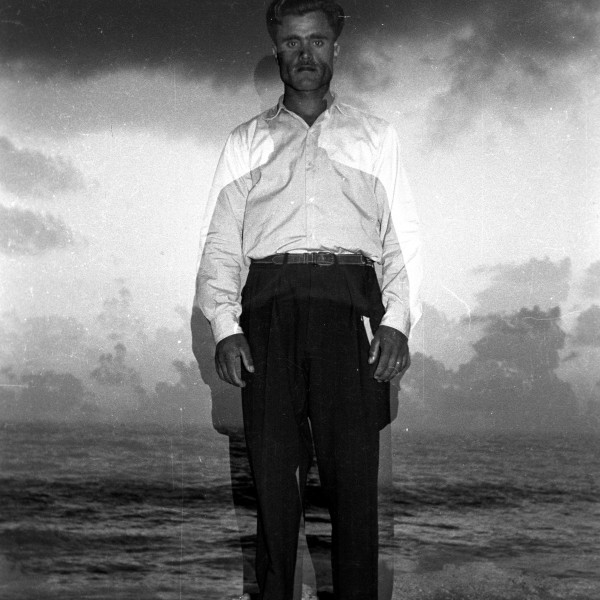
05.10.2018 - Akram Zaatari: The Fold - Space, time and the image at The Fold - Space, time and the image Contemporary Arts Center, Cincinnati
Akram Zaatari: The Fold - Space, time and the image
Contemporary Arts Center, Cincinnati
5 October 2018 - 10 February 2019
For this exhibition, Zaatari positions the seemingly simple fold as a narrative form. The artist explains how "a photograph captures space and folds it into a flat image, turning parts of a scene against others, covering them entirely. Every photograph hides parts to reveal others...What a photograph missed and what was present at the time of exposure will remain inaccessible. In those folds lies a history, many histories." The exhibition will attempt to uncover and imagine these stories, peering into the scratches, erosion and that which archives previously shed.
Curated by Steven Matijcio and presented in partnership with FotoFocus Biennial 2018.
Further information -
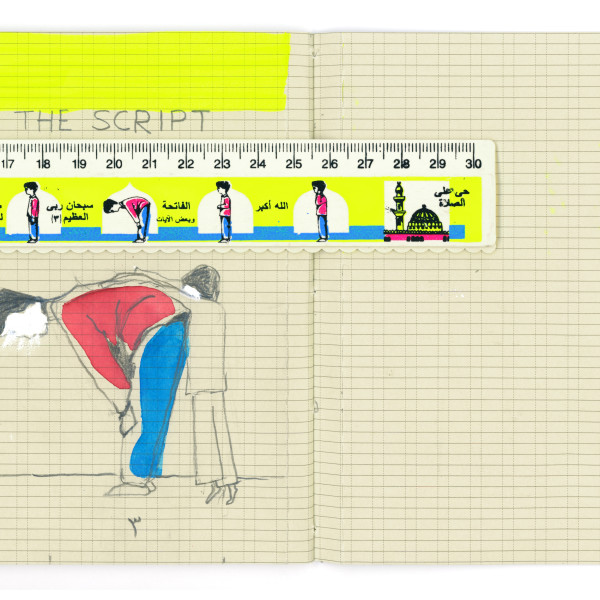
13.07.2018 - Akram Zaatari: The Script at New Art Exchange, Nottingham
Akram Zaatari: The Script
New Art Exchange, Nottingham
13 July - 9 September, 2018
Launch event: 12 July, 6-9pm
RSVP here
Akram Zaatari will be in conversation with Dr Anthony Downey (Professor of Visual Culture in the Middle East and North Africa at Birmingham City University).
14 July, 2-4pm
Reserve your free place here
New Art Exchange presents a new commission by Akram Zaatari, The Script, based on the artist's continuing observations of online societies. This new work is presented alongside the acclaimed installation, Dance to the End of Love, 2011, with formerly unpublished photographs from his Objects of Study project.
The Script is a touring exhibition by New Art Exchange in partnership with Turner Contemporary and Modern Art Oxford and is funded by Arts Council England.
-
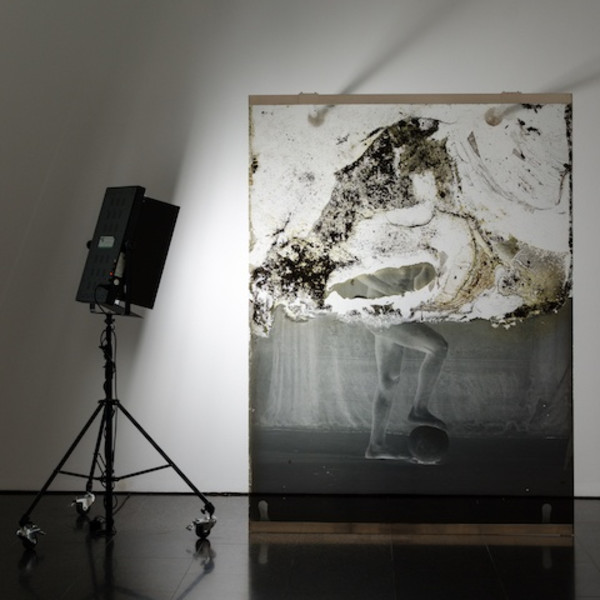
09.05.2018 - Akram Zaatari: Against Photography at National Museum of Modern and Contemporary Art, Seoul
Akram Zaatari: Against photography: An annotated history of the Arab Image Foundation
National Museum of Modern and Contemporary Art, Seoul
11 May - 19 August, 2018
-
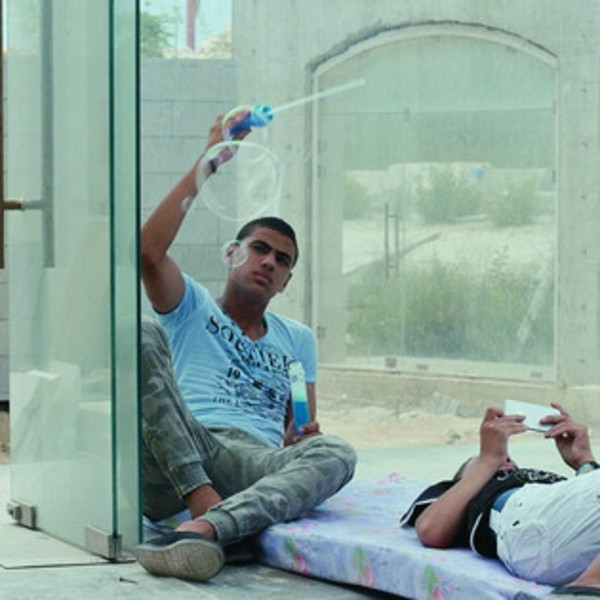
Akram Zaatari: Tomorrow Everything Will Be Alright at Videobrasil
Akram Zaatari: Tomorrow Everything Will Be Alright
Videobrasil, Sao Paulo
3 September - 3 December, 2016
Tomorrow Everything Will Be Alright is Akram Zaatari's first solo exhibition in Brazil. Curator Solange Farkas and co-curator Gabriel Bogossian present six video works and a set of drawings that explore the delicate breach between public and private space and between past and future, reflecting on image making and its ties to politics, desire, and memory.
-
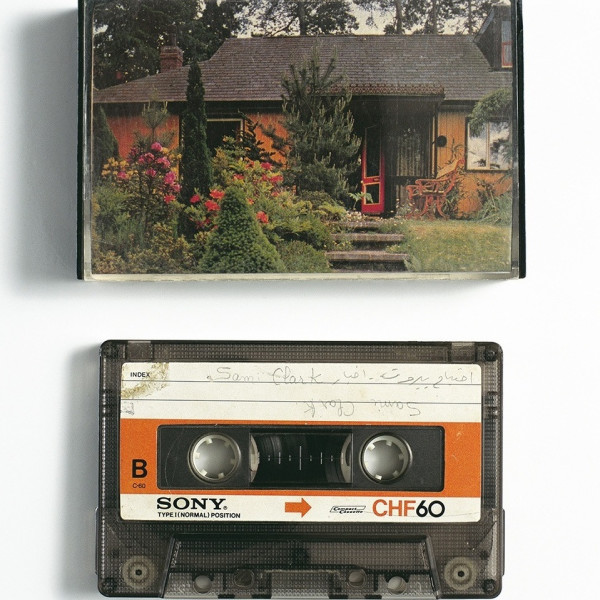
Akram Zaatari: This Day at Ten at Kunsthaus Zürich
Akram Zaatari: This Day at Ten
May 20 -July 31, 2016
Kunsthaus Zürich
Kunsthaus Zürich presents This Day at Ten. This inaugural solo exhibition is the first opportunity for a Swiss audience to engage with Akram Zaatari’s work and offers an insight into his multi-faceted artistic practice.
-
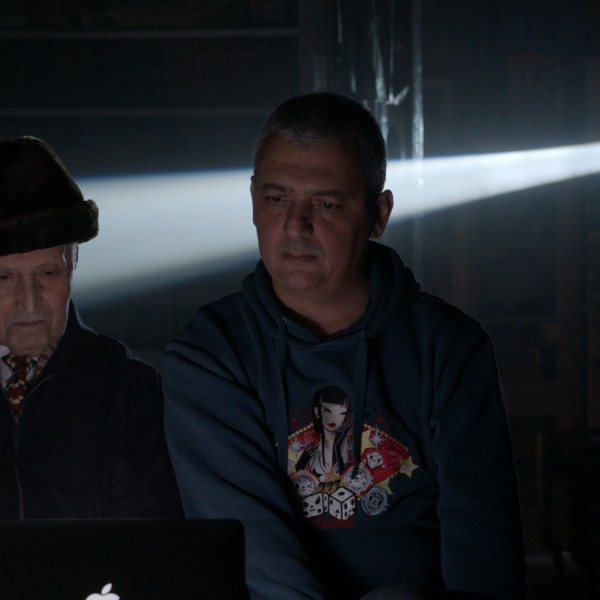
Akram Zaatari: Twenty-Eight Nights and a Poem screening at Tate Modern
Akram Zaatari: Twenty-Eight Nights and a Poem
Tate Modern, Starr Auditorium
Wednesday 11 May 2016, 6.30-9pm
After the screening the artist will be in conversation with Tate Modern curator Andrea Lissoni, followed by a Q&A with the audience.
-
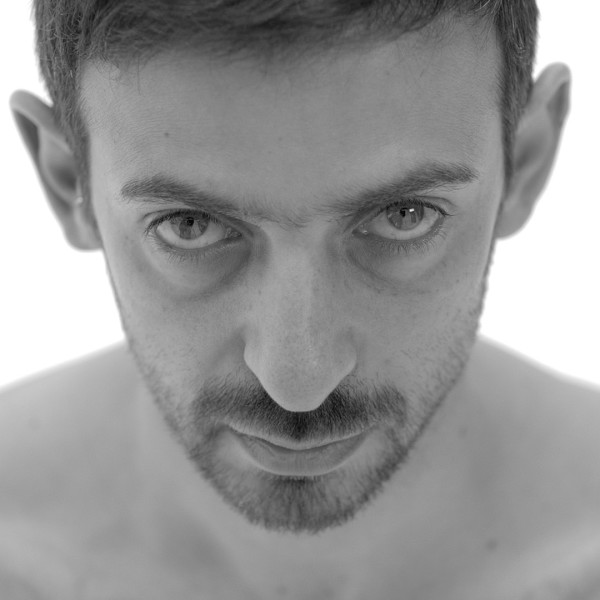
Akram Zaatari: The End of Time at The Common Guild, Glasgow
Akram Zaatari: The End of Time
April 8 - June 16, 2016
The Common Guild, Glasgow
-

Akram Zaatari at British School at Rome
FRAGMENTS: Meeting Architecture
Akram Zaatari: The Archaeology of Rumour
12 February, 2016
British School at Rome
-
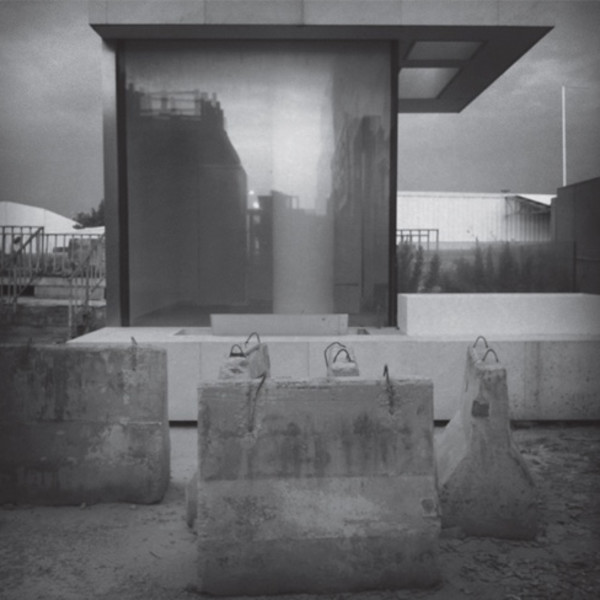
Akram Zaatari at the Gwangju Biennale
Gwangju Biennale
Gwangju, South Korea
September 5- November 9, 2014
-
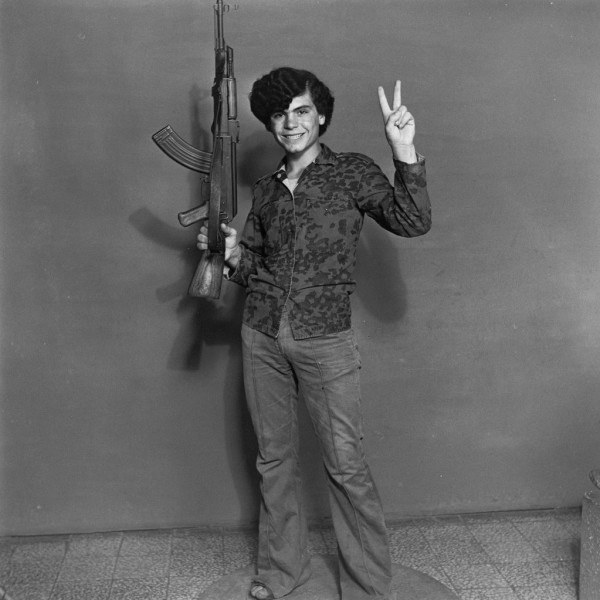
Akram Zaatari at the New Museum
Here and Elsewhere
New Museum, New York
-
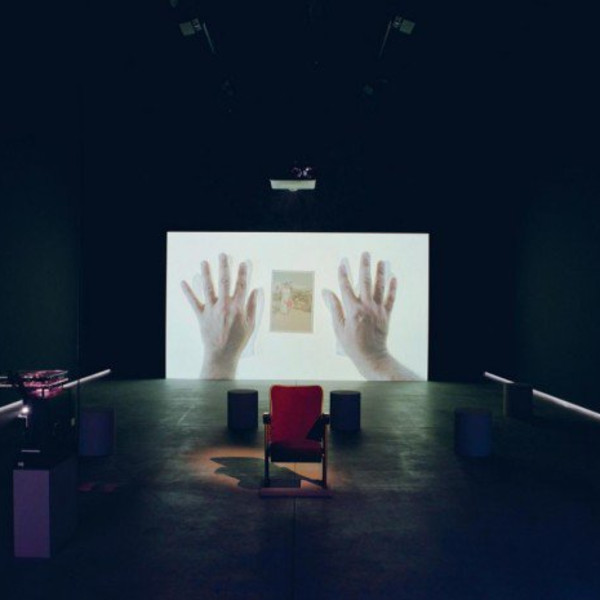
Akram Zaatari: This Day at Ten, Wiels Contemporary Art Centre, Bruxelles
WIELS presents for the first time in Belgium an exhibition by Lebanese artist Akram Zaatari, who has emerged as one of the most prominent commentators on photography of the Middle East. Zaatari's practice is closely tied to the practice of collecting. Through books, photographic installations, and videos, Zaatari's visual studies reflects on the shifting nature of borders and the production and circulation of images in the political context of the region. Paralleling his long-term engagement with "the state of image making in situations of war", his work looks into notions of surveillance and expressions of masculinity, exploring the way different media apparatuses get employed in the service of power, resistance, and memory. This sensibility was formed in the course of living through fifteen years of war in Lebanon, watching it unfold and recording it as a teenager.
As co-founder of the Arab Image Foundation - an expanding collection of over 600,000 images - Zaatari is deeply invested in examining how photography served to shape notions of aesthetics, postures and social codes, therefore looking at the present through a wealth of past records of vernacular and studio photography from the Middle East. "I do not believe in the neutrality of the archive," Zaatari says. He has spent much of the last decade studying, indexing, and presenting the archive of Studio Sheherazade, established in 1953 by photographer Hashem el Madani in Saida, South Lebanon - Zaatari's city of origin - as a register of social relationships and of photographic practices.
Akram Zaatari, born in 1966 and author of more than 40 video works, lives and works in Beirut. Zaatari recently represented Lebanon in the 55th Venice Biennale and partook in dOCUMENTA XIII and Liverpool Biennial (2012), and Istanbul Biennial (2011). His work has been exhibited in and collected by museums all over the world, including at Tate, London; Bristol Museum, Bristol; Centre Pompidou, Paris; SFMOMA, San Francisco; MoMA, New York; Kunstverein, Munich; MUSAC, Léon; and Kunsternes Hus, Oslo.Curator: Dirk Snauwaert
-
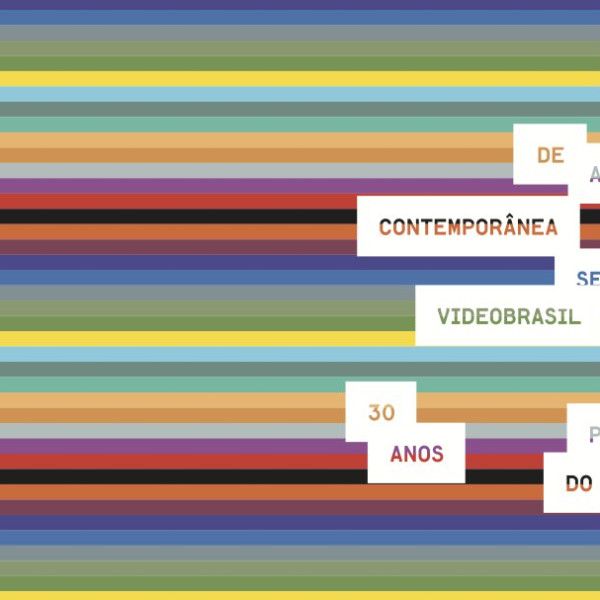
Alexandre Da Cunha and Akram Zaatari: 18th Festival Video Brasil, Sao Paulo
The 2013 edition of the Contemporary Art Festival celebrates an important moment for the biennial show. The main Brazilian event dedicated to the artistic production from the geopolitical South (Latin America, the Caribbean, Africa, Middle East, Eastern Europe, South and Southeast Asia and Oceania) goes thirty. It is the only Brazilian international festival for contemporary art, with exhibitions, public activities, awards. As in previous editions, a major exhibition establishes a dialogue with the Southern circuit: besides the Southern Panoramas competitive show, this year the highlight is the three decades of experimentation and risk assumed by Videobrasil since 1983, brought together in the exhibition 30 Years.
-
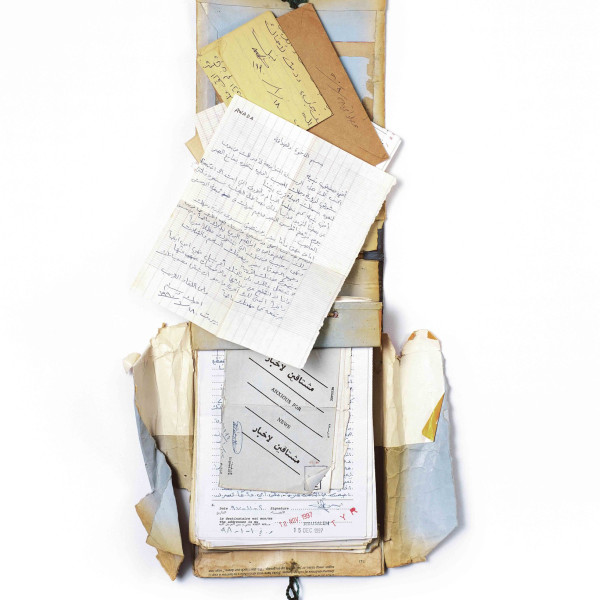
Akram Zaatari: ALL IS WELL, Agnes Etherington Art Centre, Kingston University, Ontario
The Art Centre is pleased to present the first Canadian solo exhibition of works by Akram Zaatari, one of Lebanon's most respected contemporary artists. Zaatari's art practice involves unearthing, collecting and re-contextualizing a wide range of documents that confound notions of history while recognizing the ways in which these documents are uneasily situated as evidence of tense political and cultural conditions. The exhibition will juxtapose several video and photography projects that explore what Zaatari calls the "dynamics that govern the state of image-making in situations of war." In this exploration, Zaatari employs letter writing as a device, a mode of address and a research method to situate his works in a fractured political context while offering intimate and particular ways of knowing the event.
Born in Saida, Lebanon, in 1966, Akram Zaatari is an artist, curator and writer living in Beirut. He is one of the co-founders of the Arab Image Foundation (www.fai.org.lb) a non-profit organization whose mission is to collect, preserve and study photographs from the Middle East, North Africa and the Arab diaspora. His work has been featured in discourse-setting exhibitions such as Documenta 13 in Kassel, Germany and the Sharjah Biennial, and was on view at the Museum of Modern Art (MoMa) in New York from mid-May to September 2013. Zaatari also represented Lebanon at the Venice Biennale in 2013. His Canadian premiere immediately follows these two high-profile engagements.
This exhibition is curated by Victoria Moufawad-Paul . A publication with essays by the curator, Sylvie Fortin and Judith Rodenbeck accompanies the exhibition.
Victoria Moufawad-Paul
This exhibition is generously supported by the Ontario Arts Council's program for Culturally Diverse Curatorial Projects, the George Taylor Richardson Memorial Fund and the Chancellor Dunning Trust Lecture, Queen's University.
-
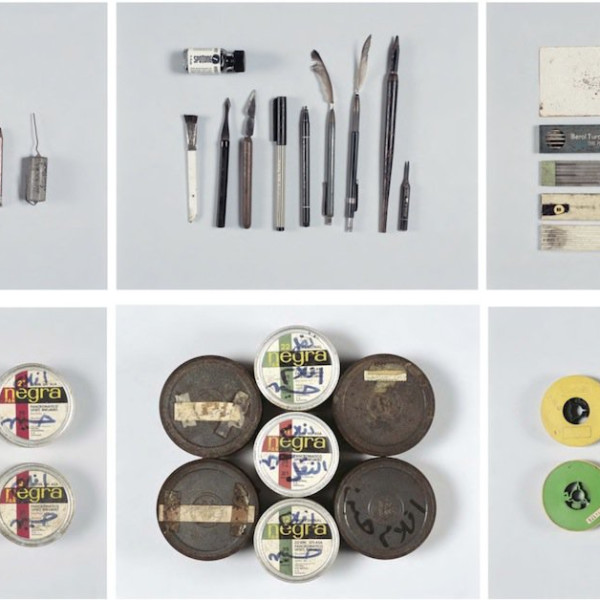
Akram Zaatari in conversation with Achim Borchardt-Hume, Culture Now Talk, ICA London
Akram Zataari is a filmmaker, photographer, archival artist and curator. One of the founders of the Arab Image Foundation, which aims to track down and preserve photos from North Africa, the Middle East, and Arabic communities around the world, Zaatari collects, examines, and recontextualizes a wide range of documents that testify to the cultural and political conditions of Lebanon’s postwar society.
Solo exhibitions in 2013 include On Photography People and Modern Times, Thomas Dane Gallery; ALL IS WELL, Agnes Etherington Art Centre, Kingston University, Ontario; Letter to a Refusing Pilot, Lebanon Pavilion, 55th International Venice Biennale, Venice; Akram Zaatari: Project 100, MOMA, New York.
-
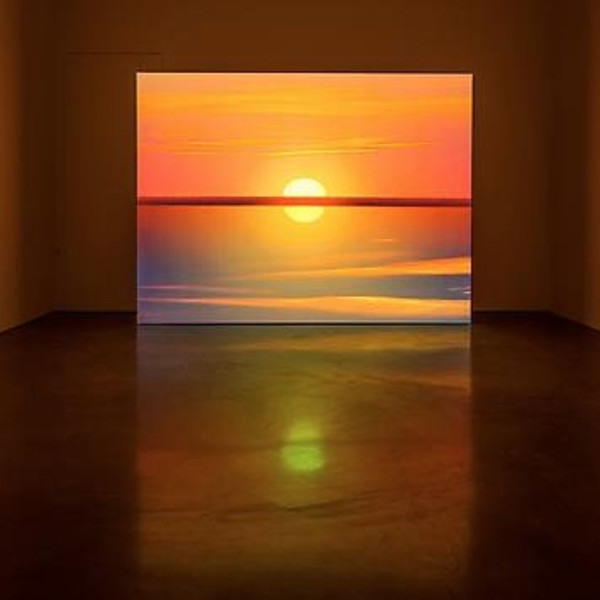
Paul Pfeiffer and Akram Zaatari: Group Exhibition, Regen Projects,
Regen Projects is pleased to present a group exhibition of video works by John Bock, Keren Cytter, Paul Pfeiffer, Gillian Wearing, and Akram Zaatari. This presentation marks the first time many of these works will be shown in Los Angeles.
John Bock’s Dandy (2006) was filmed at the family home of Henri de Toulouse Lautrec, the Chateau du Bosc. The video stars Monsieur Lautréamont, a character akin to Lautrec, who is willing to transgress traditional taste in the pursuit of aesthetic perfection. It is both period drama and surreal fantasy, featuring the artist as actor, and sculptural props resembling Bock’s work outside of the moving-image medium. Bock was recently included in The Encyclopedic Palace at the 55th Venice Biennale, and will have a major solo exhibition at the Bundeskunsthalle in Bonn, Germany (October 3 – January 12, 2014).
For Untitled (2009), artist Keren Cytter used both trained and untrained actors to shoot in front of a live audience at the Hebbel am Ufer theater in Berlin. Inspired by John Cassavetes’s Opening Night (1977), the film follows a theater actress as she prepares to go on stage and is confronted by the constructed nature of identity and reality. Her backstage ‘monologue’ resonates with the nature of role-playing and the performance awaited by the audience on the screen. Untitled was
last shown in Los Angeles during a one-person exhibition of Cytter’s work at the Hammer Museum in 2010. In addition to making video-based works, Cytter has published numerous novels, screenplays, journals and poems, and is the founder of the dance and theater company Dance International Europe Now (D.I.E. NOW).
Paul Pfeiffer’s Morning After the Deluge (2003) uses digital technology to create an illusion combining sunrise and sunset into a hypnotic projected image. The work takes its title from J. M. W. Turner’s painting from 1843, Light and Colour (Goethe’s Theory) – the Morning after the Deluge – Moses Writing the Book of Genesis, which depicts the dawn following the devastation of the biblical event. Both atmospheric and contemplative, Pfeiffer’s film is a rumination on the passing of time while suspending it indefinitely. Pfeifferis the recipient of numerous awards and prizes including the Bucksbaum Award given by the Whitney Museum of American Art (2000) as well as the Alpert Award for Visual Arts (2009). His work has been the subject of recent solo exhibitions at the Albright-Knox Gallery, Buffalo, New York in 2010 and the Blanton Museum of
Art, Austin, Texas in 2012.
The brief but powerful Bully (2010) by Gillian Wearing features Method actors engaging in an improvisational exercise in which an incident from the protagonist’s personal experience is reenacted. As the participants taunt and belittle the victim, painful memories emerge and emotions arise, blurring fact and fiction as roles and motivations become less clearly defined.
Bully was cut from the 83-minute documentary feature Self Made (2010), which was funded by the UK Film Council, and will be presented for the first time in Los Angeles. Wearing recently had a retrospective organized by the Whitechapel Gallery, London, which traveled to K20, Kunstsammlung Nordrhein-Westfalen, Düsseldorf, Germany and Pinakothek der Moderne, Munich, Germany and will have a solo exhibition at Regen Projects in the fall of 2014.
Akram Zaatari’s The End of Time (2013) depicts a changing combination of two men enacting a cycle of seduction and indifference. Zaatari’s work explores aspects of representation, identity, intimacy, and desire and is informed by research on vernacular Middle Eastern photography and the functions of the archive. One of the founders of the Arab Image Foundation, which aims to locate and preserve photos from Arabic communities around the world, Zaatari’s work investigates how images and image-making affect notions of history and memory. Akram Zaatari represented Lebanon this year at the 55th Venice Biennale with Letter to a Refusing Pilot (2013) and is currently premiering in the United States two video installations at the Museum of Modern Art in New York.
-

Akram Zaatari representing Lebanon at the 55th International Venice Biennale
Akram Zaatari
'Letter to a Refusing Pilot'June 1-November 24, 2013
Press conference: May 29, 2:30pm, Arsenale, Calle della Tana 2169/f
Professional preview: May 29-31Akram Zaatari will be presenting a major new work, titled Letter to a Refusing Pilot, in the Lebanese Pavilion at the 55th International Art Exhibition - La Biennale di Venezia. Curated by Sam Bardaouil and Till Fellrath, the exhibition marks the debut of Zaatari's most aesthetically ambitious and politically nuanced project to date, and creates a dialogue between two works, a new 45-minute video and a looping 16mm film, in an immersive environment conceived as a stage awaiting an actor, or a cinema awaiting a spectator.
In the summer of 1982, a rumor made the rounds of a small city in South Lebanon, which was under Israeli occupation at the time. It was said that a fighter pilot in the Israeli air force had been ordered to bomb a target on the outskirts of Saida, but knowing the building was a school, he refused to destroy it. Instead of carrying out his commanders' orders, the pilot veered off course and dropped his bombs in the sea. It was said that he knew the school because he had been a student there, because his family had lived in the city for generations, because he was born into Saida's Jewish community before it disappeared. As a boy, Akram Zaatari grew up hearing ever more elaborate versions of this story, as his father had been the director of the school for twenty years. Decades later, Zaatari discovered it wasn't a rumor. The pilot was real.
Pulling together all of the different strands of Zaatari's practice for the first time in a single work, Letter to a Refusing Pilot reflects on the complexities, ambiguities, and consequences of refusal as a decisive and generative act. Taking as its title a nod to Albert Camus' four-part epistolary essay "Letters to a German Friend," the work not only extends Zaatari's interest in excavated narratives and the circulation of images in times of war, it also raises crucial questions about national representation and perpetual crisis by reviving Camus's plea: "I should like to be able to love my country and still love justice."
Akram Zaatari
Akram Zaatari is an artist whose work is tied to collecting and exploring photographic practices in the making of social codes and aesthetic forms. Regarding the present through a wealth of photographic records from the past, Zaatari co-founded the Beirut-based Arab Image Foundation in 1997, and he has been working on the extensive archive of Hashem el Madani's Studio Shehrazade, in the Lebanese port city of Saida, since 1999. The author of more than 40 films and videos-including The End of Time(2013), Tomorrow Everything Will Be Alright (2010), Nature Morte (2008), In This House (2005), This Day (2003) and All Is Well on the Border (1997).Zaatari investigates notions of desire, pursuit, resistance, memory, surveillance, the shifting nature of political borders and the production and circulation of images in times of war. His works have been featured in dOCUMENTA (13) (2012), the Istanbul Biennial (2011), and the Venice Biennale (2007), among others, and he has shown his films, videos, photographs and other documents in institutions such as the Centre Pompidou in Paris, Tate Modern in London, Kunstverein and Haus der Kunst in Munich, Le Magasin in Grenoble, MUSAC in Leon, MUAC in Mexico City and Videobrasil in Sao Paulo.
Sam Bardaouil and Till Fellrath
Sam Bardaouil and Till Fellrath co-founded Art Reoriented, a multi-disciplinary curatorial platform operating from Munich and New York in 2009. Their past and ongoing exhibition, research and publication projects include collaborations with several museums and cultural institutions such as MoMA in New York, Mathaf in Doha, INHA and IMA in Paris, IVAM in Valencia, the Gwangju Museum of Art and the Today Art Museum in Beijing.Integral to Bardaouil and Fellrath's practice is the critique of institutionalized exhibition structures. Through their work, they question the way artworks have been appropriated by reductionist narratives and politicized modes of representation. They excavate art historical materials for the purpose of repositioning them in the more dynamic framework of contemporary artistic production.
-
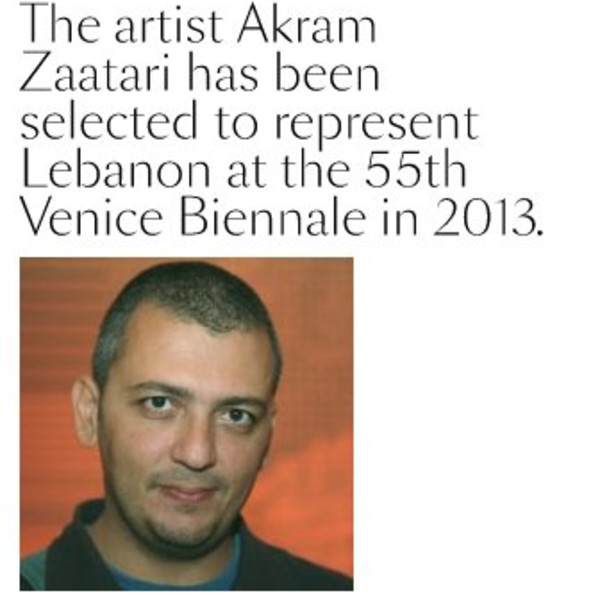
Akram Zaatari represents Lebanon at the 55th Venice Biennale 2013
Akram Zaatari was selected by the curators of the Pavilion Sam Bardaouil and Till Fellrath, the cofounders of Art Reoriented, the multi-disciplinary curatorial platform based in Munich and New York.
Akram Zaatari's work combines radio, television, and photographic archival material with his own personal narrative to examine the ideological circulation and geographic production of images in the context of the Middle East.
With a degree in architecture from the American University of Beirut (Lebanon) and a master's degree in media studies from the New School for Social Research, New York, USA, Zaatari explored the documental possibilities of video before making it his preferred medium of expression. He took his research into photography and collectionism as an artistic practice to new depths in the Arab Image Foundation, in Beirut, of which he is cofounder.
The Beirut-based artist has exhibited at such institutions as the Centre Georges Pompidou (Paris, France), Grey Art Gallery (New York), Munich Kunstverein (Munich, Germany), and MUSAC (León, Spain), as well as at the Turin Triennial (Italy) and the biennials of Venice (Italy), Sydney (Australia), and São Paulo.
Akram Zaatari has received widespread recognition in major institutions and exhibitions like Documenta 13 and has won the 2011 Yanghyun Prize and the 2011 Grand Prize Videobrasil.
-
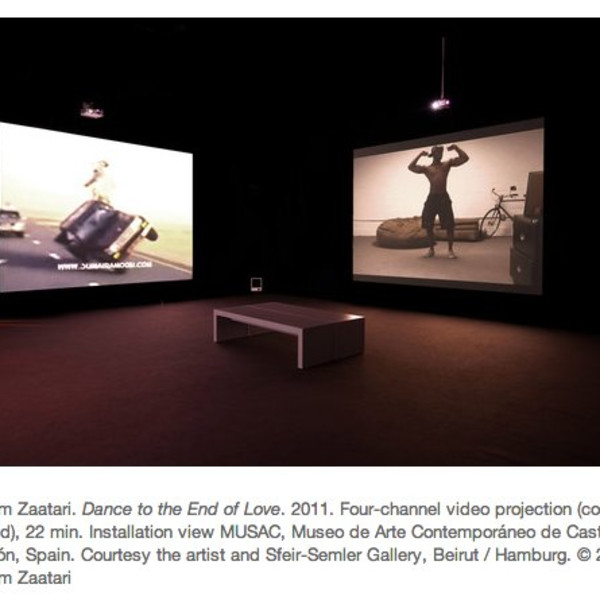
Akram Zaatari: Project 100, Moma, New York
Working in photography, film, video, installation, and performance, Beirut-based artist Akram Zaatari has built a complex, compelling body of work that explores the state of image-making today. One of the founders of the Arab Image Foundation, which aims to track down and preserve photos from North Africa, the Middle East, and Arabic communities around the world, Zaatari collects, examines, and recontextualizes a wide range of documents-from found audiotapes to family photographs to videos found on YouTube-that testify to the cultural and political conditions of Lebanon's postwar society. His artistic practice involves the study and investigation of the way these documents straddle, conflate, or confuse notions of history and memory.
Projects 100 features the American premiere of two video installations: Dance to the End of Love (2011) and On Photography, People and Modern Times (2010). Comprised of found YouTube clips made by Arab youth and shared freely online, Dance to the End of Love examines the role of social media as a space that is both intimate and public. On Photography, People and Modern Times, which tracks photographic records that Zaatari researched and collected for the Arab Image Foundation in the late 1990s, is a meditation on intimate past moments evoked by photographs and a present environment that secures their preservation. Cutting across temporal and geographic borders, these two video installations probe the nature of time and assert the permeability of memory.
This exhibition is organized by Ana Janevski, Associate Curator, Department of Media and Performance Art, and Eva Respini, Associate Curator, Department of Photography, with Katerina Stathopoulou, Curatorial Assistant, Department of Photography.
The Elaine Dannheisser Projects Series is made possible in part by the Elaine Dannheisser Foundation and The Junior Associates of The Museum of Modern Art.
-
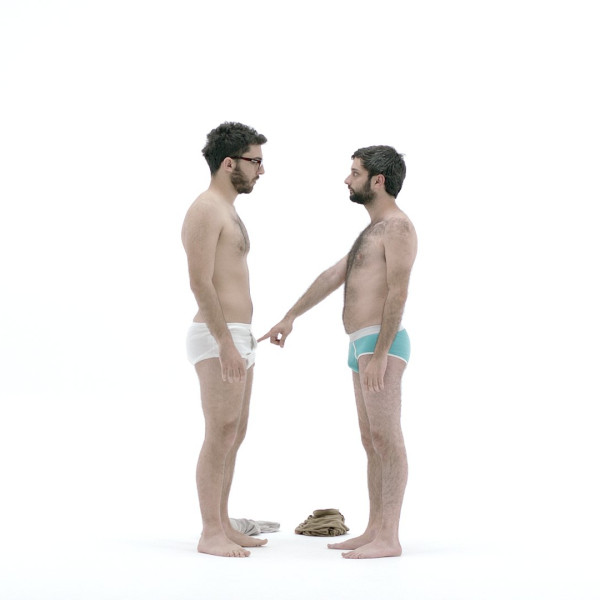
Akram Zaatari and Jean-Luc Moulène, 'Ici, Ailleurs (Here, Elsewhere)': Friche de la Belle de Mai, Marseille
Ici, ailleurs Exposition inaugurale de la Tour-Panorama et l'année Capitale
Pour l'inauguration de ce nouvel espace, une ambitieuse exposition invite des artistes contemporains des deux rives. Si toute œuvre s'inscrit dans un contexte originel et une histoire singulière, le voyage et le nomadisme qui caractérisent l'artiste contemporain constituent une expérience existentielle, qui devient le lieu même de la création. À l'ère de la globalisation, au contact de la diversité du monde et des cultures, l'identité de chacun se trouve sans cesse remaniée. Une quarantaine d'artistes issus des pays du pourtour de la Méditerranée ont été choisis sur leur aptitude à nous repenser en êtres aux identités plurielles, en perpétuel devenir, et sur leur capacité à investir le réel en une réflexion critique. Ils appartiennent pour la majorité d'entre eux à la génération née dans les années 1960-1970 et jouissent d'une reconnaissance sur la scène internationale. Parmi les œuvres exposées, dont un grand nombre de propositions inédites conçues pour l'exposition, quelques-unes traitent du paysage méditerranéen. Elles sont nombreuses à interroger les notions d'identité, de citoyenneté, du même et de l'autre. Plusieurs s'attachent à transmettre l'expérience de l'émigration, de l'exil et du déracinement. Elles offrent aussi une vision de l'histoire au présent, par le biais de l'articulation de récits personnels à l'Histoire. En prise avec les réalités sociales, politiques et géopolitiques, elles nous informent de l'état du monde.
-

Akram Zaatari: The Liverpool Biennale
Akram Zaatari presents his first major UK solo presentation at FACT on the occasion of the Liverpool Biennial. The work within the exhibition considers private and public interactions with the human body and the technological apparatus. Zaatari's show takes us from the intimacy of a photographer's studio in Egypt to an inspiring 4-channel media installation consisting of private videos of Arab youth, found on YouTube. The artist considers the thin line that connects us to the public - exploring various techniques - studying the relationship between a photographer and his muse, as well as the solitary relationship between Arab male youth and social media.
All works are UK Premieres.
The Works
Her + Him (2012) consists of a single channel-film, Her + Him Van Leo (1998-2012) and a vitrine of photographs taken by legendary Armenian photographer Van Leo in 1959. The vitrine shows an Egyptian woman called Nadia undressing in twelve different positions who is also the subject of the film. This expanded documentary is a dialogue between photography and video.
Another Resolution (1998) presents a series of images of children taken at different photographic studios in different poses. Zaatari noticed that these children often possessed seductive attitudes, and so decided to invite grown ups to embody the same poses as the children - reflecting the adult attitude suggested by the different poses taken by the original photographer. This work serves as a comment on the photographer's power to affect the social codes expected of both children and adults in photographic practice.
Bodybuilders (2011)
Bodybuilders is a series of photographs taken in the Southern Lebanese port city of Sidon (Saida). The images are reproduced from damaged negatives taken by Hashem al Madani in 1948. The eroded images create a poetic juxtaposition in contrast with the strapping youth of the bodybuilders depicted within them.
Dance to the End of Love (2011) is a four-screen media installation consisting of found YouTube footage of Arab youth who have decided to film themselves and share these rushes freely online. Zaatari notes that all of these films were produced on the eve of what is today referred to as the 'Arab Uprising', and as such, considers the role of YouTube as a space that is both intimate and public.
Dance to the End of Love was made out of low resolution footage made mainly with mobile phones in Egypt, Yemen, Libya, Saudi-Arabia and Oman, and showing male bodybuilders, men driving cars and riding motorcycles, singing and dancing, but when included within this 4-channel-video, this unique piece becomes a symphony in 5 movements about the loneliness of the oppressed, about hundreds of thousands crushed and forgotten in their home countries, who choose to use their computer screens as sites to live out their collective, heroic dreams.
Akram Zaatari, b. 1966, Saida, is an artist who lives and works in Beirut, Lebanon. Recent exhibitions include Photography: New Documentary Forms (Tate Modern, London, U.K., 2012), Composition for Two Wings(Contemporary Art Centre Vilnius, Lithuania, 2012), and Seeing is Believing (Kunst-Werke Berlin, Germany, 2011).

